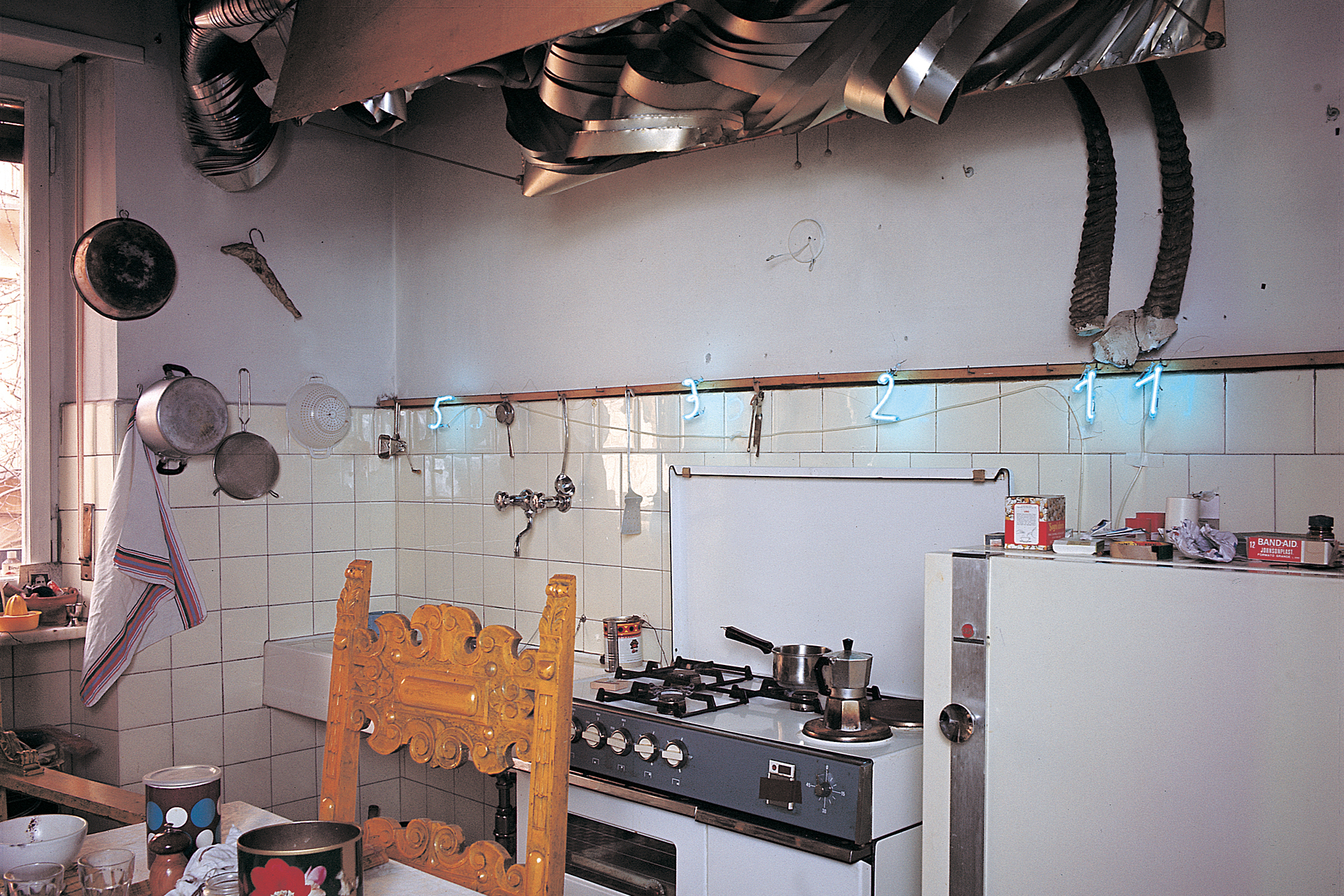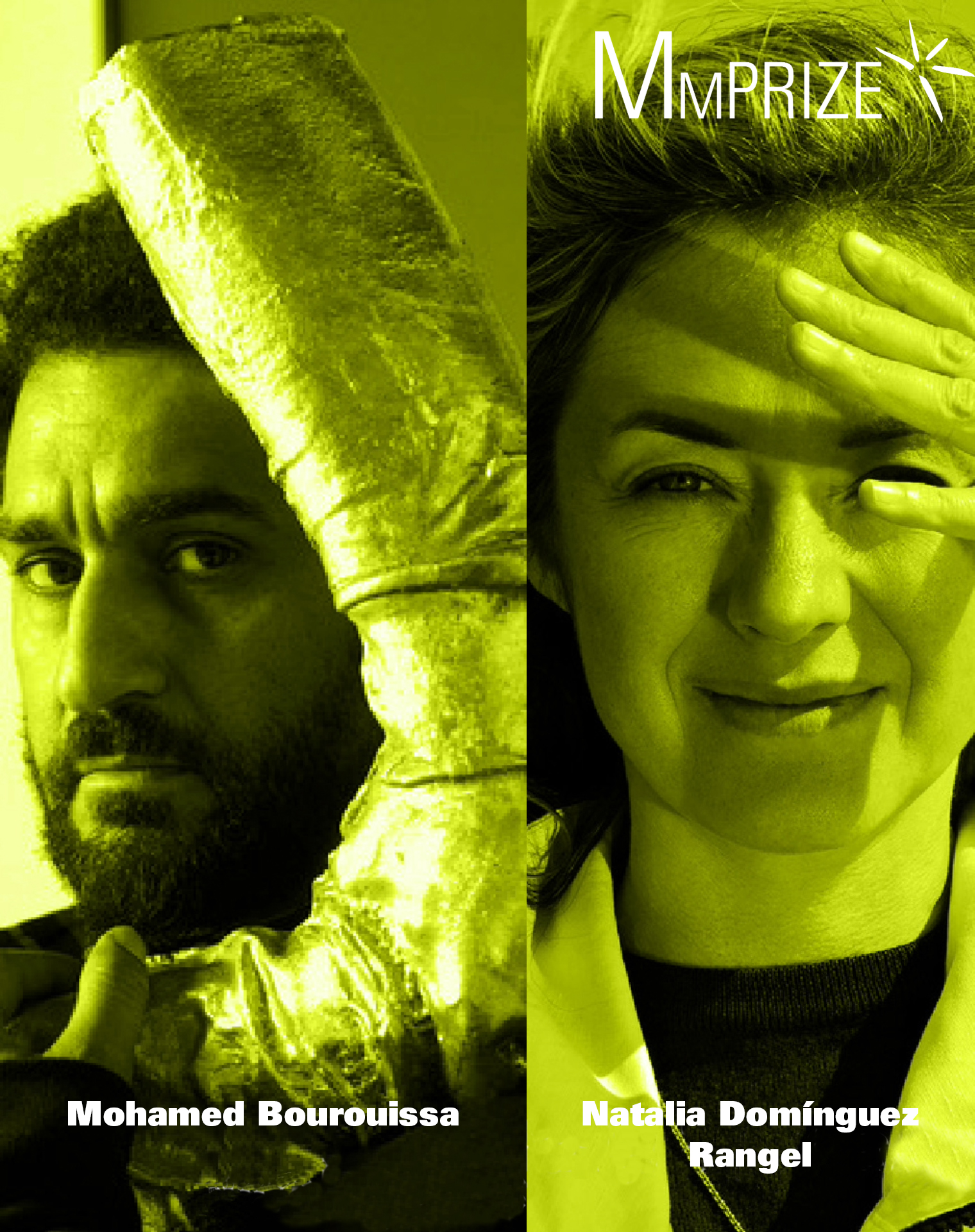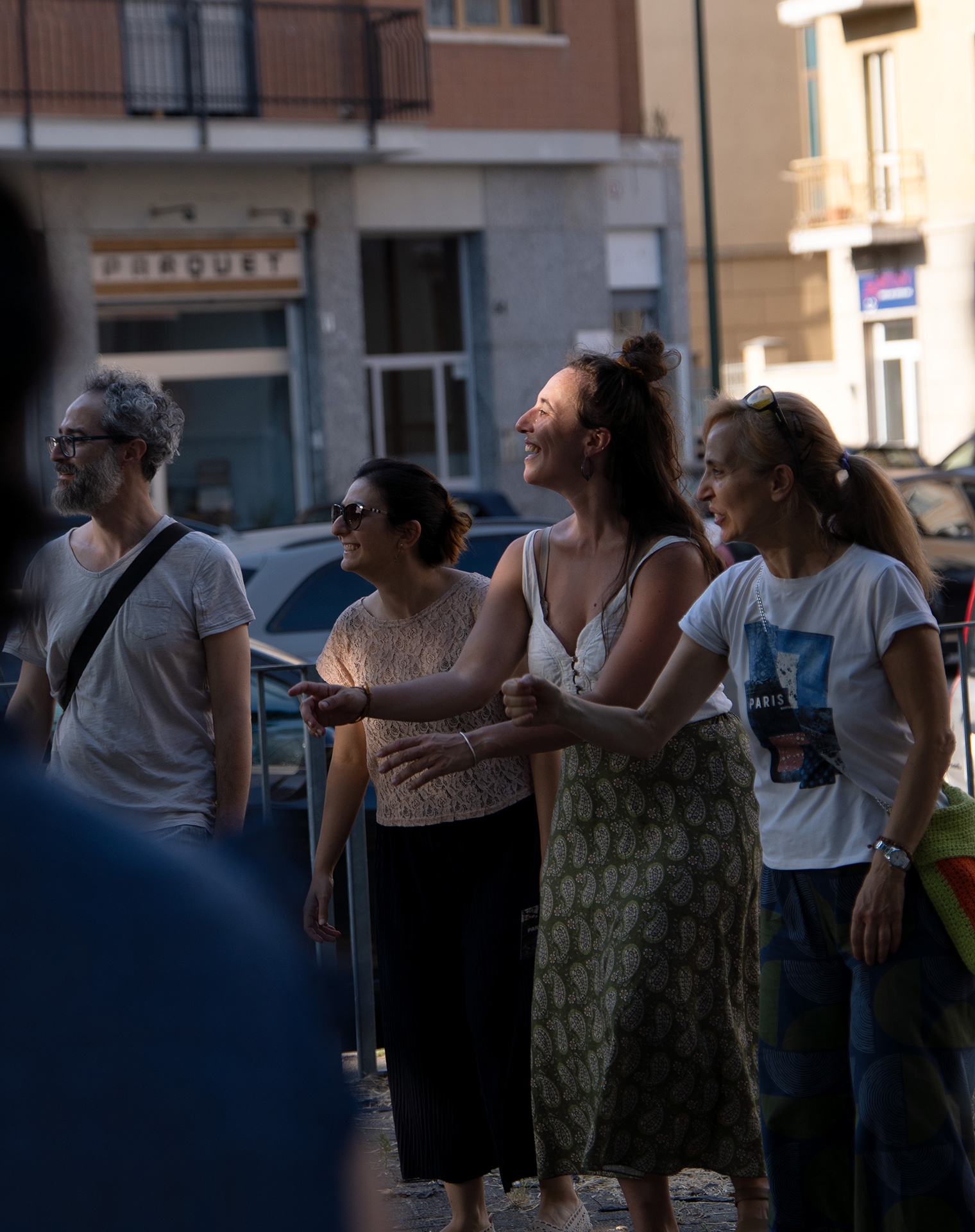Festa Invisibile: noun composed of the words festa /’fɛsta/ s. f. [lat. festa, fem. vers. of the adj. festus “festive, solemn”] and inviṡìbile adj. [from late Latin invisibĭlis, comp. of in-2 and visibĭlis “visible”] – 1. A ritual of popular tradition that celebrates what is unseen or ignored by the gaze of society, because it is incorporeal or immaterial, hidden or buried, or because it is considered undeserving of attention, shameful, inconvenient or annoying.
An invisible festival subverts the established hierarchies that determine what is worthy of being seen and what is not, the practices and identities that, according to the dominant opinion, must be confined to domestic spaces and those that can inhabit public space.
Paloma Calle and Massimiliano Casu’s artistic proposal explores the expressive and political possibilities offered by the immense sector of the popular festival, understood both as a social laboratory and as a tool allowing collective, open and inclusive artistic experimentation.
This experimental practice makes use of the tools of the performing arts, sound and music creation, dance and the expressiveness of movement, with the aim of activating critical and embodied visions in society, where the body can assume a central role as a thinking and creative device.
The idea of critical hedonism and the conception of entertainment as a transformative experience represent the basis of a path of artistic experimentation aimed at the multiple construction of new tools in the struggle for equality, parity and visibility of those categories that our society marginalises and discriminates against.
In relation to the Fondazione Merz’s invitation to intervene in the context of Piazzale Chiribiri and Borgo San Paolo in Turin, we propose an experiment around the ritual of the neighbourhood party, a formative moment in the collective construction of identity, based on the imagination and invention of traditions that can be the driving force behind a dialogue between different communities cohabiting a fragmented urban space.
The basic idea of the project is to create an open laboratory able to receive the ideas and energies of the people who live in the neighbourhood, proposing the construction of a popular festival, an off-season carnival, a procession, a parade, a festival or a kermis that can offer an excuse to re-imagine the context, the relations between those who live there and the image that all this together projects towards the rest of the city.
The idea will take material form in the activation of a sort of ‘permanent assembly’ of an imaginary neighbourhood committee, which will invent and realise the festival through a process of community co-creation in the second half of July and October 2022. It will take the form of a multidisciplinary artistic creative workshop providing the opportunity to activate a dialogue around the neighbourhood and its future.
In addition to bringing the neighbourhood closer to the Fondazione Merz (and vice versa), this format offers the opportunity to activate a collective artistic experience capable of breaking down the established barriers between those who produce and those who enjoy culture, to explore the facts and biographies of the neighbourhood’s everyday life that do not form part of the official historiography, enhancing them and placing them at the centre of the process of urban regeneration of Borgo San Paolo.
Under the patronage of Città di Torino
































